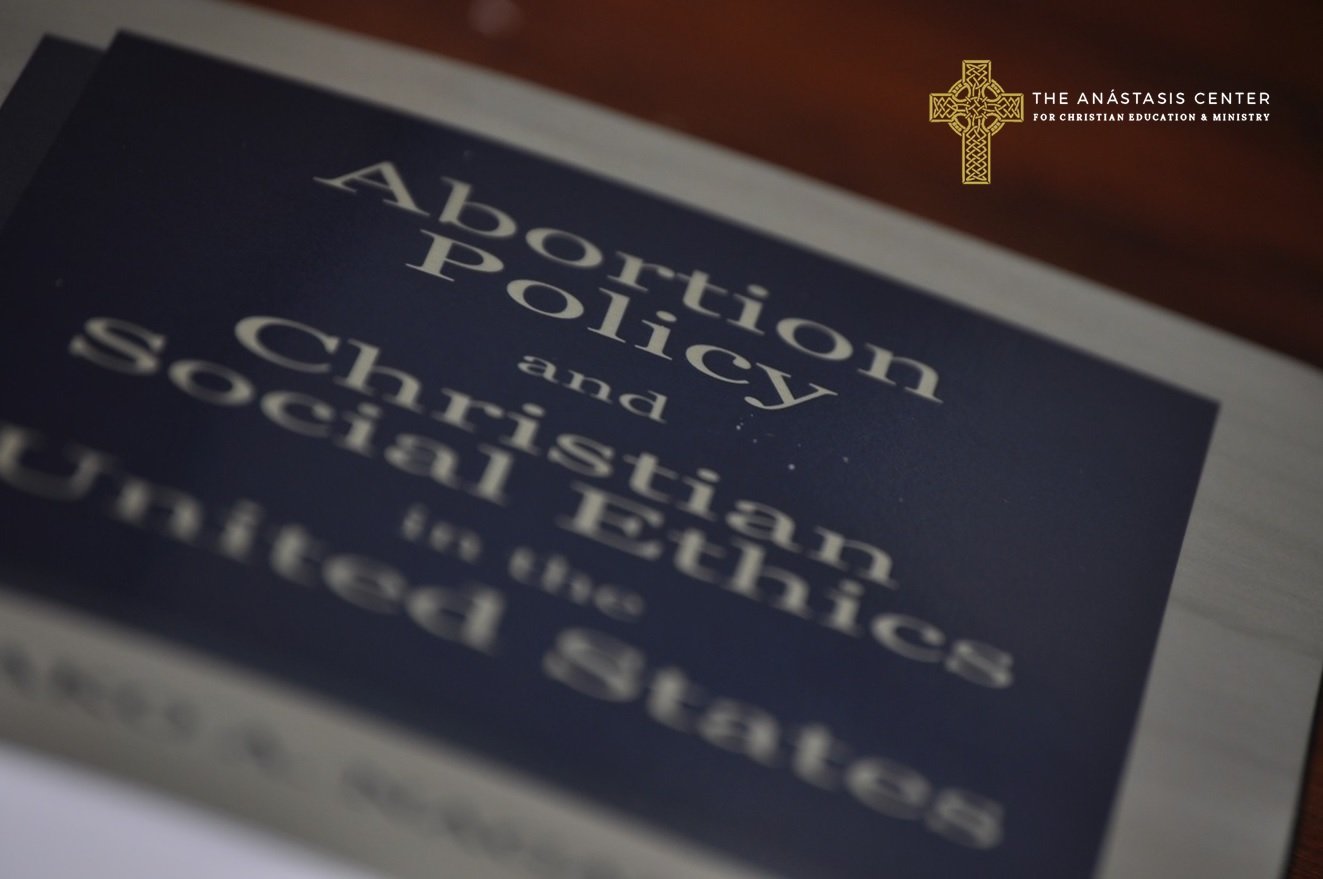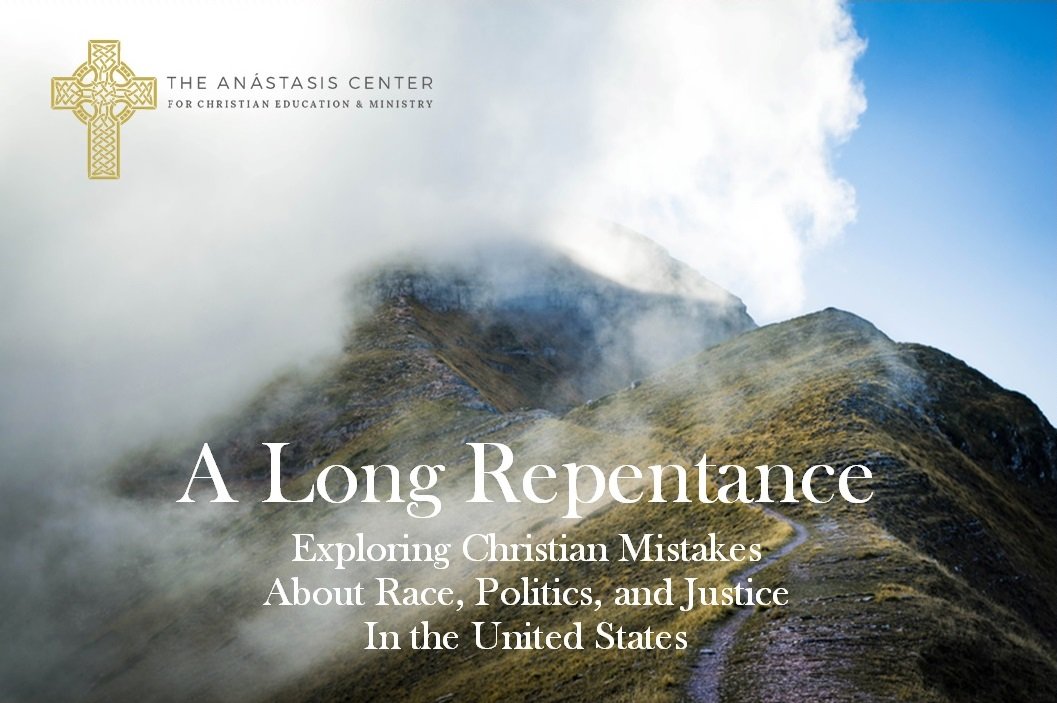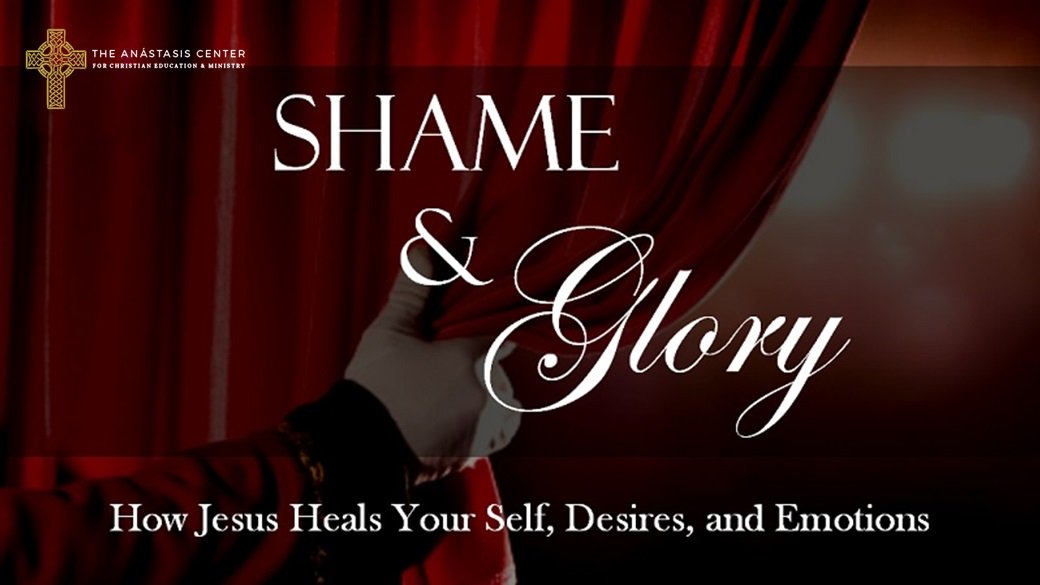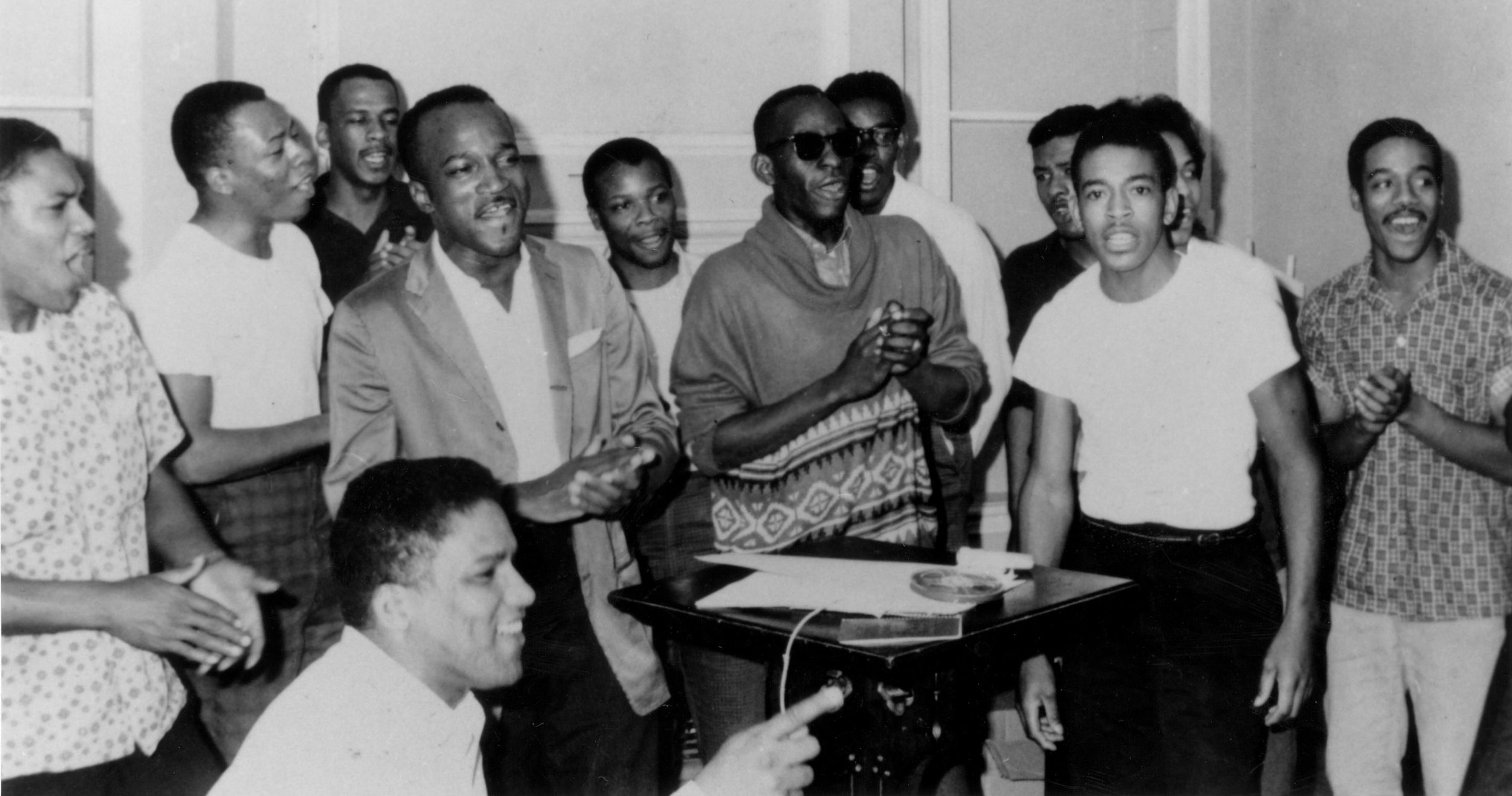Study Guides
Work through our videos and written materials at your own pace. These materials often accompany our Classes.
We can coach you to lead these materials in your own context. Connect with us using the form below at the bottom of this page.
Foundation: God’s Restorative Justice
God has a vision for relationship involving all things. God calls for human partnership to restore that vision. God’s justice is restorative and centered in Jesus. Our Christian Restorative Justice Study Guide has 101, 201, and 301 level materials. It will help you understand and participate in God’s restorative justice. The 101 level introduces you to four principles of justice (meritocratic-retributive; distributive; libertarian; restorative) and the secular inability to organize them while Christian faith does. The 201 level examines retributive vs. restorative justice as relates to the criminal justice system. The 301 level examines restorative justice more broadly to wealth and power.
Foundation: Healing Atonement
The definition of the word “atonement” can be conveniently explained by sounding out its syllables. It means to make two parties “at one” with one another. In biblical language, “atonement” means that there is a problem in the relationship between human beings and God, which is resolved somehow. God takes the initiative to make “atonement.” There were preliminary forms of “atonement” in the Old Testament, but the supreme act of “atonement” was made by Jesus of Nazareth. Our Healing Atonement Study Guide has 101, 201, and 301 level materials. It will help you understand Jesus’ work to heal human nature from practical ministry angles (101), biblical interpretation (201), and early Christian history (301).
Abortion Policy and Christian Social Ethics
Not sure about the “pro-life” vs. “pro-choice” binary? See the Study and Action Guide for Abortion Policy. The material is drawn from Mako Nagasawa’s 2021 book, Abortion Policy and Christian Social Ethics in the United States. Session 1 examines Scripture, the early Christian approaches to this issue, what the science of embryology tells us about fetal development, and how Christians can and should support contraceptive care. Session 2 examines the relationship between poverty and the abortion rate, comparing the Roman Catholic wholistic approach following the Great Depression to the white evangelical retributive approach from the Reagan years. Session 3 examines the issue in restorative vs. retributive justice frameworks.
A Long Repentance
Exploring Christian Mistakes About Race, Politics, and Justice in the United States
Searching for faithful ways of understanding and engaging our political and racial climate? Read and discuss A Long Repentance series of blog posts where we explore how Christian (mostly Protestant) heresies started and continue to influence our modern political and racial challenges. This includes the very notion of race itself, and how our modern economics, housing, schooling, and policing systems have been shaped. Christians must take responsibility for these heresies in the framework of repentance. We lead the material in online discussion groups, but you can use the study guide with the blog posts for personal reflection or discussion in your family, church, organization, etc.
Big Questions About God
Contrasting the Earliest Christian Theology With High Federal Calvinist Theology & Why It Matters
C.S. Lewis in Mere Christianity likens theology to a map. When you travel, or offer directions, you want a map that is as faithful to the reality as possible. After all, if you have a bad map, you could get lost or drive right off a cliff. Good maps have been worked and reworked by many over the years. If you just relied on your own experience, then that’s really limited; how much of the world can you experience yourself? Some say that theology is just a bunch of words that we argue about. Lewis says that, on the one hand, that is correct: A map is not the reality itself but only verbal expressions attempting to describe the reality. We worship and relate to God. And God cannot be reduced to words on a page. But, on the other hand, some statements are better at describing reality than others. Those statements have real value that will help us take a journey with God, into the activity and presence of God Himself.
Big Questions About God does a head-to-head comparison of quotes on the following topics: Who caused this mess? From what does Jesus save us? Can a loving God have a hell? What about the people who died before Jesus? Does God predestine people to hell? Why does God want our worship? What’s my motivation to obey Jesus? Is God’s justice restorative or retributive? And more.
Does the Bible Have Evidence of Supernatural Design?
A Sociological Approach
Why does the Bible begin with monogamy as an ideal, when other traditions begin with polygamy? Why does Genesis 2 indicate that marriage must take priority over family of origin in terms of relational priorities, contrary to every other ancient culture? How did the Bible come to stop kidnapping and promote enormous debt-relief, when the leading cause of people falling into enslavement was debt, then and now? The relational vision expressed by the Bible is unexplainable on naturalistic grounds, and is an argument that a good divine Mind was involved in its composition. This series of case studies explores the relationship between the biblical material and the prevailing cultures around them, or similar cultural situations from other time periods, to show the human authors of Scripture were not easily bullied by their cultural context. Most of the examples draw from the Pentateuch, or Torah. Look at these case studies and see if you can explain how the human authors of the biblical text would have invented these ideas.
It’s a Man’s World: The Genesis 3:16 Effect
Join Hayley Rose (M.A. NCC LPC) and Rachel Darnall (M.A. Theological Studies) as we explore the causes, effects and cure for gender hierarchy in eight video episodes covering areas including: moral responsibility; work and compensation; reproduction and parenthood; civic life; education; marriage; sexual agency.
Participants will learn the surprising truth about why patriarchy happens, how it’s developed and mutated throughout history, and how Christians can honor God’s original plan for gender equality and co-rule while living in “a man’s world.” For more information, see this page.
Sessions: Eight Zoom sessions of 90 minutes each
Homework: Watch one video of roughly 60 minutes per week.
Dates: TBD in mid-October to mid-December 2025.
Jesus and the Healing of Our Sin-Sickness
Evangelism 101 Training
Wondering how to share about Jesus and your experience of him? Wondering how to share about Jesus and your experience of him? This is a workshop in four sessions with take-home assignments. We help you tell a part of your transformation story based off of Jesus’ retelling Israel’s story in Matthew 3:13 - 4:11. Because Jesus heals human nature of the sin-sickness, he heals the evil within human nature with our partnership, and shows us a God who is 100% good. The Study Guide is the workbook, Jesus and the Healing of Our Sin-Sickness: Evangelism in the Restorative, Healing Atonement Paradigm.
Plantation Capitalism vs. God’s Jubilee Economy
A Long Repentance, Part 2
Plantation capitalism is a system of production involving the exploitation of people and the planet. This series of videos and blog posts will examine the theological, legal, and economic ramifications of the plantation capitalism system that took hold with Christian enthusiasm in the colonies and the formal United States. We compare and contrast that to Jesus’ Jubilee Economy, the honoring of people and the planet, which we see in Scripture and glimpse in church history. This Study Guide is constantly being developed; we have 21 videos and lessons to date.
Reconstruction
The Deep Roots of Early Christian Theology
Have you been deconstructing Christian faith and practice but wondering what we can know and invite others into? Wondering what early Christian thought and practice can teach us? You will be inspired by the early Christian record of abolition of slavery and women in leadership. You’ll learn how to share Jesus, proclaim the gospel, and understand hell as the love of God. You’ll explore why Scripture is trustworthy, and examine the issues of violence and empire in the formation of the Bible. Learn how to be a Christian in politics without being a Christian nationalist. And examine how the earliest Christians engaged issues of sex, marriage, and singleness, and thought about the formation and shaping of human desires. See the video recordings from our 2021 and 2022 Reconstruction classes.
Shame and Glory
How Jesus Heals Your Self, Desires, and Emotions
Shame and Glory: How Jesus Heals Your Self, Desires, and Emotions is a curriculum for small group discussion or personal reflection. While healthy shame means regret, toxic shame is the desire to hide the self. Either way, glory is the response of God to invest Himself in us and renew His image in us. This material explores humanity as fundamentally good, but corrupted by sin, and not entirely in control of our own desires and emotions. Part of the spiritual and emotional struggle, then, is to know ourselves, know how God sees and loves us, and to receive into ourselves the Spirit of Christ. Peppered with insights from the early Christians, including some “desert fathers and mothers” who were the earliest “spiritual directors.” Shame and Glory contains a smaller series, The Emotions of God.
The Theology of J.R.R. Tolkien’s The Lord of the Rings
This is our 11 part video series exploring Tolkien’s The Lord of the Rings, with references to The Hobbit, The Silmarillion, and other books in the Legendarium. The story is a beautiful exploration of the character of God, the purposes of God described as a musical symphony where God wants apprentice musicians to learn and play their parts well, evil as dissonant music and redemption as musical reintegration, human being and human becoming, the addictive power of evil, the hero’s journey and the defeat of evil as atonement and salvation, the possibility of created beings to become divine light-bearers, ethics and epistemology, lessons on power and politics, and how pagan virtue points to Christian faith, hope, and love.
Tolkien wrote to create a story that contained the languages he studied and invented or reconstructed, to create a pre-Christian myth for England, and to suggest an explanation for why the historic Angles converted to Christian faith so quickly. So his story foreshadows Jesus. Click here or on the graphic.
Questions for personal reflection or group discussion are included in each video.
The Theology of Marvel’s Black Panther
This is our 5 part video series exploring Marvel’s Black Panther. We talk about church history, Christian ethics and theology, and the lessons we need to learn today.
The Civil Rights Movement in the U.S., led by the Black Church, and some of the anti-imperial resistance movements in Africa, are part of a larger tapestry of Christian non-violent resistance movements. Wakanda was a "chosen people" like Israel in the Hebrew Bible, especially when we look at a human community in a garden land, who have received a divine from above, resulting in the power of women and more. Eric Killmonger's refusal to suffer again, especially for others, made him the tragic hero. This prompts us to face the biblical portrayal of human beings, too, and how Scripture portrays us as tragic heroes. Whereas T’Challa’s willingness to be vulnerable and descend again and again made him the hero. Wakanda Forever shows us the importance of grieving and ritual, especially for leaders. Click here or on the graphic.
Questions for personal reflection or group discussion are included in each video.
Study and Action Guides
If you are looking for something for your church small group to do over a 4 to 8 week period, consider these Guides. Study and Action Guides are designed for small group discussion on a relevant, modern-day issue; we connect them to Christian ethics and Christian restorative justice. We have Study and Action Guides on criminal justice, economics and finances, food and the environment, abortion policy, and more. The Guides follow the same structure. First, we examine an issue that has personal and policy importance. Second, we compare Scripture with another source or belief system, as related to the issue. Third, we consider suggestions for personal and/or policy action, and/or respond in a way best suited for your context.
Origins
The Book of Genesis
The Book of Genesis is a magnificent work of literature which put forward a beautiful relational vision about God, creation, humanity, and the human vocation. In fact, Genesis regularly argued with the other creation stories of the Ancient Near East and the Mediterranean world about these things. Genesis also helps us understand human nature, our original fall into sin-sickness, and God’s call to partner with Him in healing and restoring us, prior to the Sinai covenant, even as God laid the foundation for Jesus to come. Check out small group leader notes, messages, and other resources on Genesis and the whole Bible.
Jesus’ Kingdom Movement
The Gospel of Matthew
Jesus’ Kingdom Movement
The Gospel of Matthew
When Jesus called his first disciples, he called them to call others into his “Kingdom of God movement.” Jesus developed their faith, character, desires, and skills into his mission to the entire world. He calls us, as well, to participate and take up the baton and pass it on. Matthew’s Gospel is foundational to grasp Jesus as the new humanity for all humanity, but at the same time, to appreciate the Jewishness of Jesus. Check out devotional reflections, small group leader notes, messages, and other resources on Matthew and the whole Bible.
The Future of Your Body
Paul’s First Letter to the Corinthians
Paul grounded his response to the challenges at Corinth on the body. As Paul faced divisions and enmities that the Corinthian Christian community held, he taught on the corporate body of the church. When he faced sexual immortality, Paul reminded the Corinthians about what Jesus did with his own human body, and how he is the leading partner in the use of our bodies. Paul explained that Jesus’ resurrected body anchors our hope and ethics of the body. Check out small group leader notes, messages, and other resources on 1 Corinthians and the whole Bible.
Union with Christ
Paul’s Letter to the Ephesians
If you let the apostle Paul sit down and talk about whatever he wanted to, you would get Ephesians. Unlike the other letters of Paul, Ephesians is not a response to specific problems or questions. He stressed Jesus’ work of making us his new temple-people, his union with us by the Spirit, and our identity with him as he sits enthroned above all powers. Check out small group leader notes, messages, and other resources on Ephesians and the whole Bible.
Why Jesus?
If you’re getting to know Jesus, exploring why he is real, important, and personally knowable, our Why Jesus? Study Guide can help. The 101 level introduces the basics about Jesus and his invitation to you. The 201 level helps you explore Jesus’ relevance and calling. The 301 level helps you place Jesus in the context of larger stories, both the biblical story and others. The 401 level helps you examine tough questions. Please don’t hesitate to contact us with questions.
Contact Us
Send Us Your Questions & Comments
We periodically lead online classes using these materials. We can also coach you to do so. Please let us know if you would be interested in either. Or, just let us know your questions and comments.


















